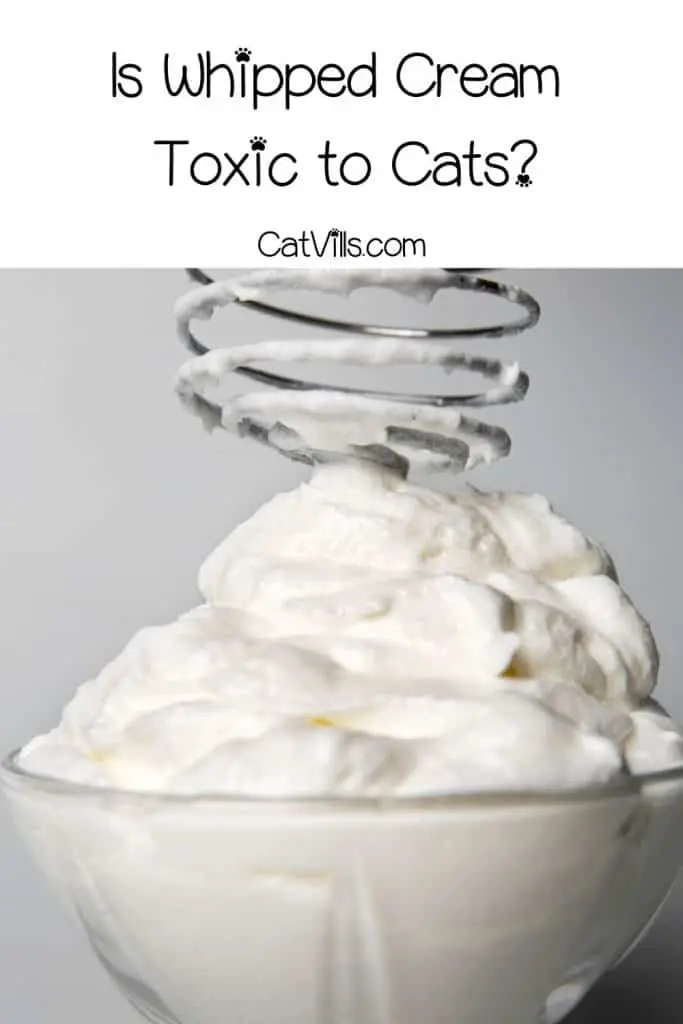Last Updated: 1 year ago
Can cats eat whipped cream? As a vet, I get this question a lot!
Whipped cream is a dairy product. It is cheap, sweet, and incredibly delicious.
No wonder why cats may be tempted to eat it! However, is it suitable for our felines to eat? Let’s find out!
Is Whipped Cream Harmful to Cats?
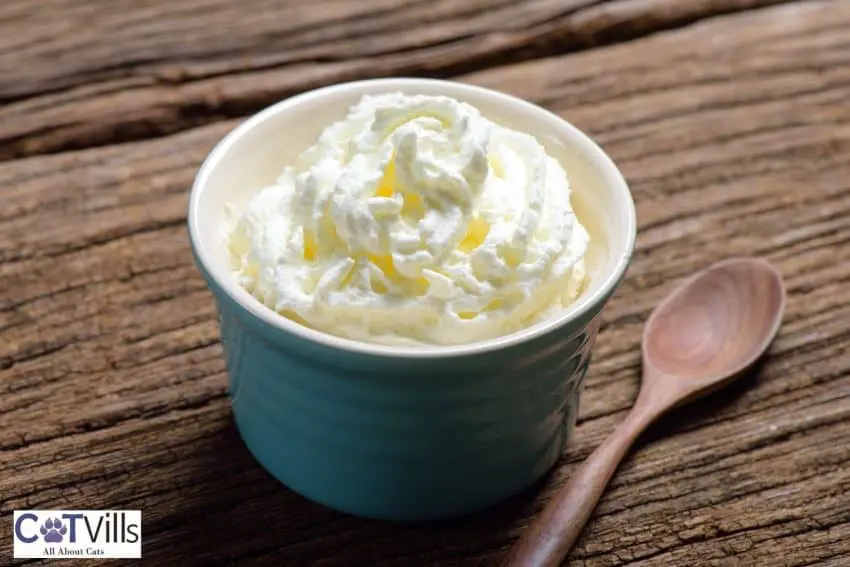
Unfortunately, the answer is yes. We know that whipped cream comes from human foods that contain a lot of fat and a high protein content.
Notably, our pets have digestive system issues and lactose intolerance to human food. Sweet foods and milk products can upset a cat’s digestive system.
Cats have food intolerances and generally should stick to a list of foods that are nutritional and healthy in their natural diet.
Of course, occasional treats excluding harmful ingredients are fine.
Keep in mind that cats are carnivores, and their diet should concentrate on these types of foods.
Why Shouldn’t Cats Eat Whipped Cream?
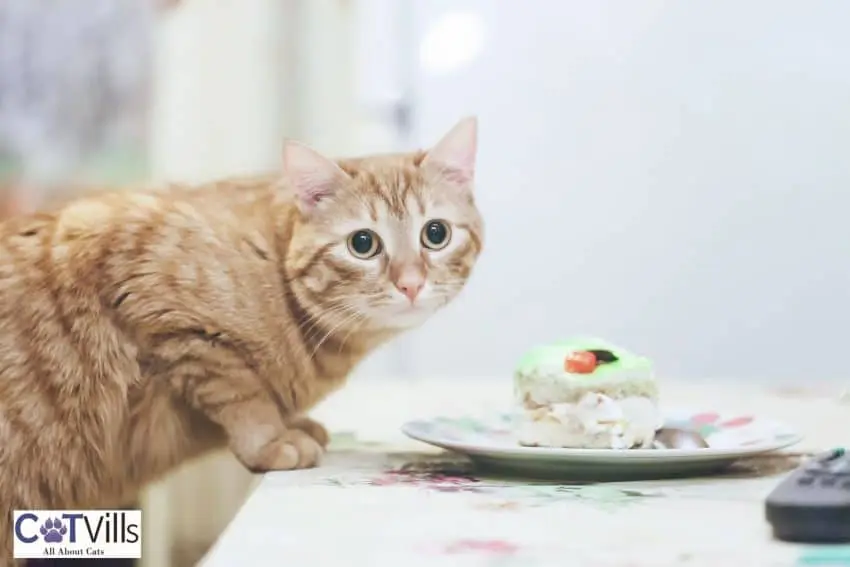
“Is whipped cream bad for cats?” Yes, whipped cream or any other type of dairy product can upset a cat’s digestive system and even be painful for them.
Even though whipped cream has a creamy, sweet, and delicious taste for both cats and humans, it is not particularly good for our pets.
A cat’s digestive system differs from a human’s. So let’s take a closer look at why it is best to avoid giving your cat this tempting ‘treat’.
Lactose Intolerant
Cats lack lactase enzymes; even kittens have very few of them and do not have dairy products.
Contrary to what is easy to assume, a cat’s mother’s milk does not contain much lactose.
This means that they are lactose-intolerant. Some people also suffer from this and have to avoid dairy.
Milk and other dairy products contain lactose. It is present in dairy products such as whipped cream and ice cream.
Sugar
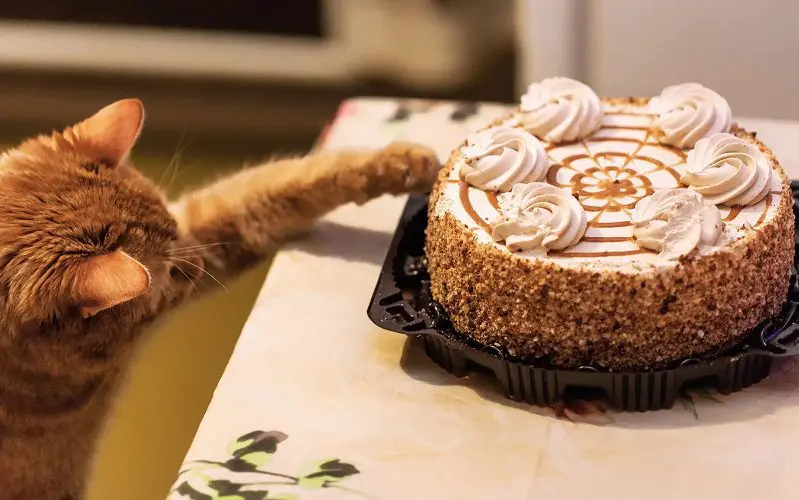
Whipped creams can have a high sugar content. The amount will vary from product to product, but it is still there.
As cats are designed to eat a meat-based diet, their digestive system does not cope well with sugar.
In fact, it can cause all kinds of health issues, including diabetes, vomiting, stomach pain, and weight gain.
Vanilla Extract
Many creams include vanilla extract, which contains a high amount of ethyl alcohol.
It is best to completely avoid giving cats vanilla extract, as even a tiny bit too much can cause lead or alcohol poisoning.
It can even have a severe effect on the liver.
Artificial Sweeteners
It is best to avoid artifical sweeteners in any part of your pet’s diet.
At best, they will cause digestive upset; at worst, if they contain xylitol, they can cause liver failure and even death.
Xylitol also has a major effect on blood sugar levels, causing them to drop significantly and causing severe health problems.
High-Fat Content
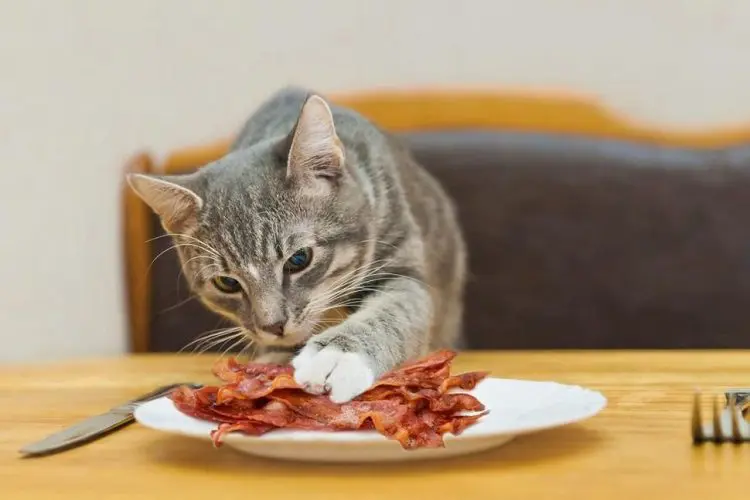
Whipped cream is high in fat, which is not ideal for your kitty. Even a small amount gives your cat too many calories and can lead to weight problems.
Whipped cream has around 51 calories per spoonful. Assuming that the typical feline weighs 10 pounds, the average kitty would require 120 calories each day.
It would be equivalent to roughly half of their daily calorie intake if you gave them merely one spoonful of whipped cream. So, eating whipped cream can cause obesity in your feline friend.
Due to its high calorie and sugar content, whipped cream can be particularly hazardous to cats that are overweight or have diabetes.
There are safer treats for cats that won’t cause any stomach discomfort or other health issues for your furry friend.
Corn Syrup
Some whipped creams will contain corn syrup, which is terrible for everyone, including cats.
It is similar to giving your cat sugar; some even contain xylitol.
Carrageenan
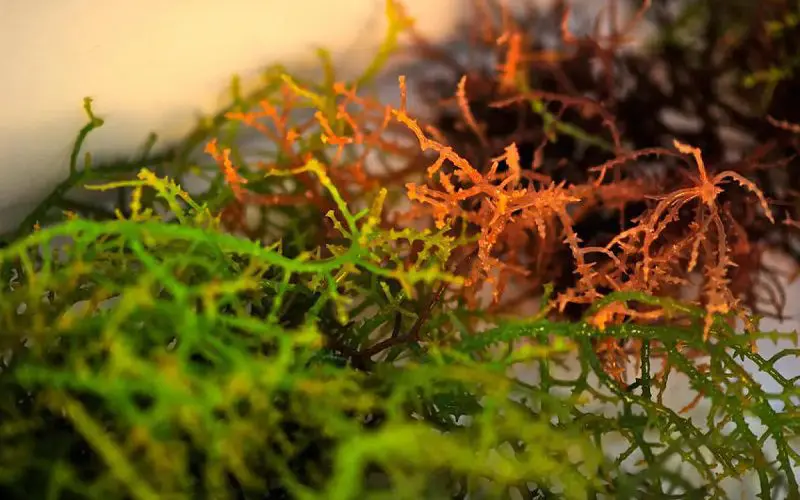
You might not be familiar with Carrageenan; I didn’t know what it was until recently.
It is used in food products to create a creamy texture and helps stabilize them, including most types of whipped cream.
However, there is controversy about whether it is safe for pets or if it causes harmful inflammation and even cancer.
Though it is not thought to be a carcinogen. It is even found in some pet foods, so if it concerns you, you might want to investigate it further.
Nitrous Oxide
While it is unlikely your cat will be exposed to much nitrous oxide if you use whipped cream from a can, you should still avoid it.
It isn’t a natural part of a cat’s diet and is just another chemical they don’t need.
Now that we know why cats can’t have whipped cream, let’s look at some other foods that are bad for them.
Does this apply to other dairy products? Yes, absolutely. Let’s take a look.
What Happens if Your Cat Eats Whipped Cream?
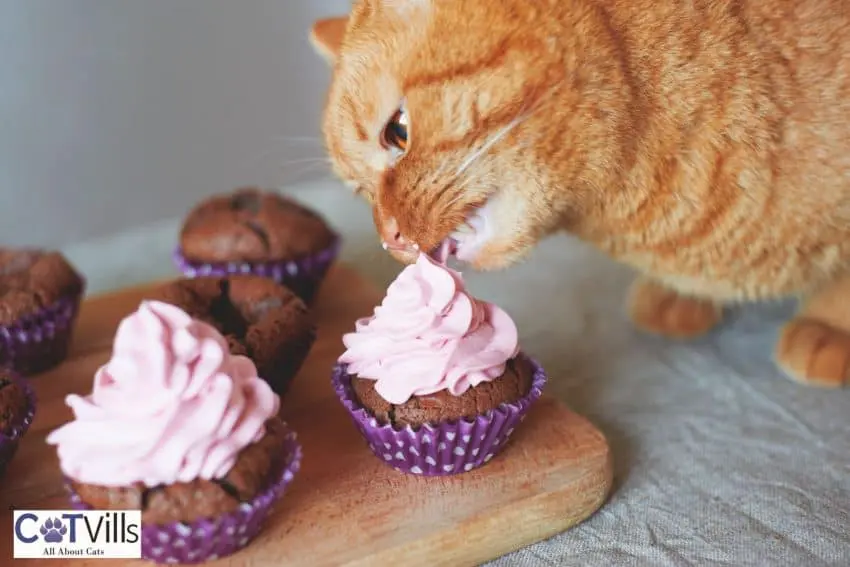
My pretty cat has only licked a small amount of fresh cream at a time and, as a result, has never shown any adverse reactions.
A tiny bit here and there is probably okay, unless it contains xylitol. However, if your cat eats a lot or is very sensitive, it might have the adverse effects I discussed above.
The adverse effects of lactose-rich foods have two main unpleasant results.
One of these is that a cat’s colon often produces a foul mixture of fluids due to fermentation caused by bacteria and unprocessed lactose sugar.
It also produces unstable fatty acids. This all results in an unpleasant situation for your cat and you!
And it means that your cat may vomit in the next 8 to 12 hours, have diarrhea, or have both.
The other main effect is pain. With all of the above going on in their digestive tract, you can see why it is pretty uncomfortable!
What Should You Do If Your Cat Eats Whipped Cream?
Please see your veterinarian if you are frightened that your cat will get sick after eating whipped cream.
If your cat eats too much whipped cream, he may experience:
- Vomiting
- Diarrhea
- Fever
- Decreased appetite
These symptoms appear within 8-12 hours due to this undigested lactose. Your vet will be able to diagnose what’s wrong with your cat based on his symptoms.
They may recommend an antibiotic to treat the infection. Your vet may suggest that you feed him a special diet formulated for cats who have lactose intolerance.
This diet includes lactose-free foods such as dry kibble, canned food, and so forth.
Other Dairy Products That Are Bad for Cats
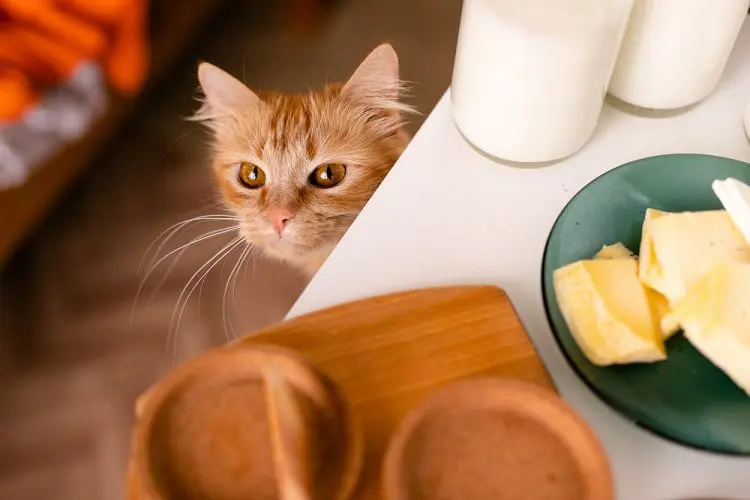
As you saw above, cats can’t digest lactose. Whipped cream isn’t the only dairy product to contain lactose.
Even your cat sneaking a taste of your Starbucks coffee will expose your cat to lactose, sugar, caffeine, and other ingredients it should not have.
So, let’s take a look at what other dairy products your cat shouldn’t have.
Cheese
- A considerable quantity of lactose is present in cheese, as it is in other dairy products. On the other hand, cheese tends to be lower in lactose than other dairy products.
- Even though it has a high fat and protein content, and cats enjoy cheese, it is not part of their natural diet.
- Lactose intolerance can cause diarrhea as it causes more water to enter the intestines. It also creates gas which can lead to digestive pain.
Yogurt
- Cats benefit from yogurt due to the digestive issues it causes. Lactose is present in yogurt, even though it contains beneficial living cultures that are excellent for your cat’s stomach.
- In the absence of lactose-free yogurt, you should avoid this dairy product.
Cow Milk
- Cow milk is pretty similar to whipped cream in terms of consistency. Cream and milk both contain lactose, which your cat cannot digest.
- It is more common to give milk to cats as a treat, as they love it, and it is a mistake many cat parents unknowingly make. However, it can also lead to many of the same problems as whipped cream. Milk also contains emulsifiers that can be hazardous.
- Cow milk is sweet and contains lactose, glucose, and so forth. All bad for your cat’s health.
Chocolate
- Chocolate is toxic to cats, just like it is for dogs
- It contains milk products and sugar, which, as you saw above, are pretty bad for cats
- Chocolate also contains theobromine and can also contain caffeine. Theobromine is toxic for cats, and eating chocolate can make your cat very sick and even cause death.
Ice Cream
- Not only does ice cream contain dairy, making it unsuitable for cats, but it is also high in fat and sugar.
- Chocolate ice cream is particularly bad.
- Even sugar-free ice cream should be avoided as it contains artificial sweeteners, which might be the very toxic xylitol.
Other Foods That Are Bad for Cats

Dairy products aren’t the only foods that are bad for cats. There are several other types of food that can make your cat sick or worse.
Garlic and Onions
This includes scallions and shallots. These foods have a bad effect on your pet’s red blood cells.
This can cause anemia. They are also very toxic if your cat eats too much, which will require an emergency trip to the vet.
Grapes
Raisins are included in this unsuitable food group for cats. Avoid letting your cat have these at all costs.
Even eating a small amount can lead to severe illnesses such as kidney failure, which happens quickly.
Raw Eggs
Cats should not eat raw eggs due to the risk of E. coli and salmonella.
If affected, your can will have vomiting, lethargy, and diarrhea. The same risk applies to your cat eating raw meat.
Fat Trimmings
While it is tempting to give your cat trimmings, and they probably will like them, it can cause an upset stomach.
Liver
Liver contains too much vitamin A, which can lead to toxicity.
This will have a negative effect on your pet’s bones, some of which will be severe. It can even lead to death.
Alternative Foods to Whipped Cream That Are Safe for Cats
You might be wondering what you can replace whipped cream with that is a safe treat for your pet. Here are a few alternatives:
Note that dairy alternatives are not a good option, as even though they might not contain lactose, they are likely to have some of the other ingredients mentioned that are unhealthy for cats.
- Cooked eggs are full of good nutrition for your cat. Just remember to prepare them plainly with no extras such as herbs, salt, or pepper. You can scramble or boil them. Either is ok.
- Chicken: A couple of pieces of cooked chicken is a great treat for your cat. My cat loves it!
- Fish: As you probably know, cats are big fans of fish. It makes a nice treat for your pet; just make sure it is cooked and doesn’t contain any bones.
FAQs
Does whipped cream hurt cats?
Yes. Your cat can still get dehydrated if he vomits or has diarrhea after eating whipped cream. Fatigue, sunken eyes, upset stomachs, nausea, increased heart rate, panting, and anorexia are symptoms.
Why is cream terrible for cats?
The chemicals in whipped cream, on the other hand, cats have severe side effects on their health. We recommend that you choose a healthy alternative meal instead of cream.
Is sour cream terrible for cats?
Yes, cats do not eat sour cream because it is harmful and toxic. Although a small amount of heavy cream can seriously harm your cat, it’s not the best diet for cats.
Conclusion
Whipped cream is not a portion of healthy cat food. Cats cannot digest, and whipped cream includes sugar, which can induce weight gain and other potentially dangerous substances.
I know this article helped you care for your feline, even in the event of accidental whipped cream consumption.
Can cats eat whipped cream? Let us know your opinion on this topic below!
Resources:
